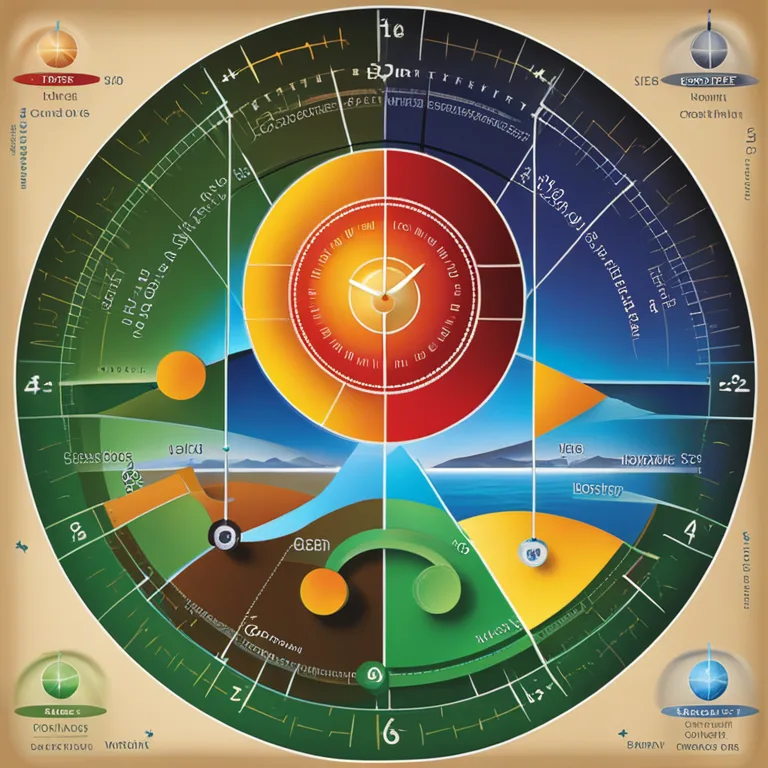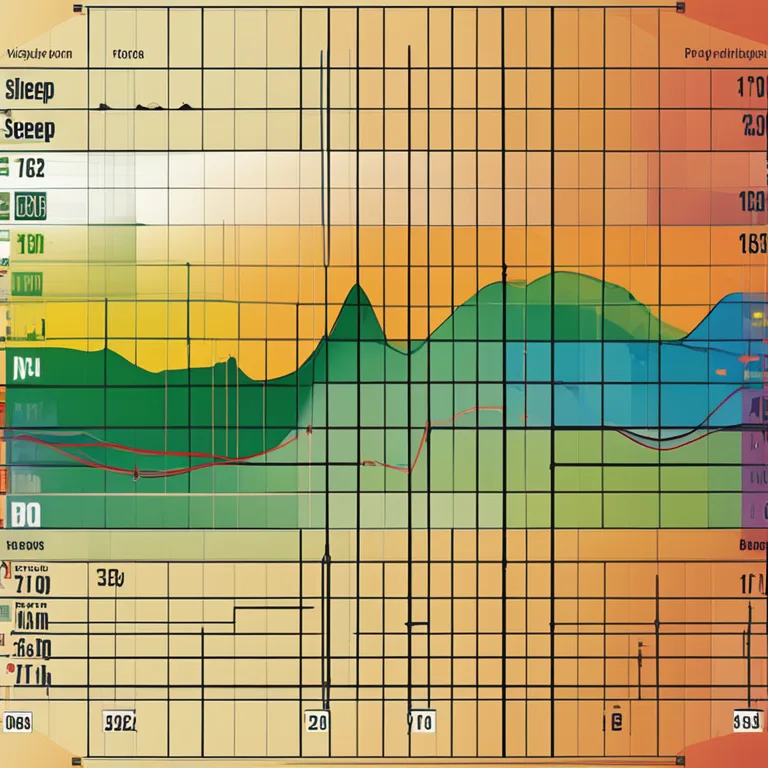
Harmonizing Sleep Patterns with Biorhythms
Discover how syncing your sleep with your natural biorhythms can enhance your rest and overall well-being in this insightful article.
article by Adrian Wallace
Biorhythms: The Body’s Natural Cycles
Biorhythms are intrinsic cycles that regulate various physiological processes in the body, influencing everything from our energy levels to mood and performance. The concept dates back to the 19th century and has been refined over time. These rhythms are typically categorized into three core cycles: physical, emotional, and intellectual, each with distinct periods. Understanding these can help us optimize our daily routines, especially our sleep patterns, for better health and functionality. By aligning our sleep with these cycles, we may improve recovery, mood, and cognitive abilities.

The Sleep-Wake Cycle and Circadian Rhythms
Central to biorhythms is the circadian rhythm, our internal 24-hour clock that responds to light and darkness, influencing our sleep-wake cycle. In our modern world flooded with artificial light and screen time, it's vital to manage these exposures to maintain a healthy circadian rhythm. Evidence-based guidelines from sleep experts now highlight the importance of dimming lights and reducing screen time before bed. Furthermore, they advocate for consistent sleep schedules even on weekends to keep this cycle regulated.

Physical Biorhythms and Sleep Quality
Our physical biorhythm operates on a 23-day cycle, affecting our stamina, strength, and overall physical state. Disruptions in this cycle, often through irregular sleep patterns, can lead to fatigue and reduced physical performance. Research indicates that adhering to a sleep schedule that complements our physical biorhythm can enhance muscle recovery and athletic performance. Proper sleep hygiene practices, including maintaining a cool, dark, and quiet sleep environment, are integral to this process.

Emotional and Intellectual Biorhythms’ Influence
The emotional biorhythm, with a 28-day cycle, influences our feelings and mood states. Meanwhile, the intellectual biorhythm, on a 33-day cycle, governs our thinking and analytical abilities. Sleep plays a crucial role in regulating these biorhythms. Inadequate or poor-quality sleep can result in mood swings and hindered mental processes. To support these cycles, experts recommend including relaxation techniques, such as meditation or reading, as part of the bedtime routine to foster emotional stability and mental clarity.

Sleep Disorders and Biorhythmic Interventions
The relationship between sleep disorders and biorhythms is a growing area of research. Sleep apnea, insomnia, and other sleep-related issues can severely disrupt biorhythmic patterns. Emerging therapies aim to synchronize patients' biorhythms using chronotherapy and light therapy to reset their circadian clocks. These treatments have shown promising results in improving sleep quality and managing sleep disorders, laying a foundation for future interventions aligned with biorhythmic science.
Biorhythm Tracking Technologies
The advent of wearable technology has made tracking biorhythms more accessible. Devices that monitor sleep stages, heart rate, and movement can provide insights into our biorhythmic state. As we move further into 2024, advances in these technologies have improved accuracy and personalized feedback, allowing individuals to adapt their lifestyles accordingly, such as adjusting sleep times to match their optimal biorhythmic windows.
The Future of Biorhythmic Sleep Research
Ongoing research into biorhythms and sleep continues to unlock potential benefits, ranging from improved mental health to enhanced longevity. With a growing focus on holistic wellness, understanding and harmonizing our biorhythms with our sleep patterns is poised to become a central topic in personal health management. The evolving science promises novel insights and strategies for achieving restorative sleep tailored to our unique physiological rhythms.
Published: 12/28/2023
Modified: 12/28/2023
More predictions
Come back here soon to learn more about yourself and your future


The Concept of Biorhythm Compatibility
Discover the concept of biorhythm compatibility and its role in personal relationships in this comprehensive guide.


The Rhythms of Life: Delving into Biorhythm
Discover how biorhythm cycles influence your physical, emotional, and intellectual wellbeing, and how to track these patterns for optimal living.


The Mechanics of Biorhythms: A Comprehensive Guide
Discover how biorhythms influence your daily life with this detailed guide to the rhythms that govern our physical, emotional, and intellectual states.